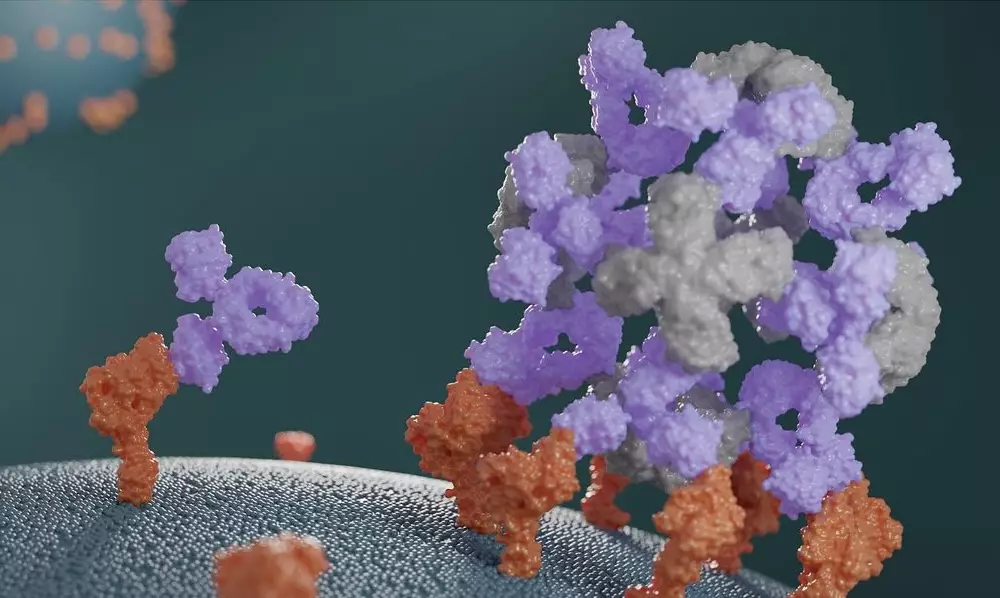Biotechnology is undergoing a seismic shift, largely attributed to advancements in artificial intelligence (AI) and computational biology. Archon Biosciences, a revolutionary startup emerging from the University of Washington, represents a pivotal development in this arena with its recent $20 million seed funding. Within a rapidly evolving market, Archon aims to transform antibody treatments through innovative protein architecture known as antibody cages (AbCs). This startup is not just another name in the biotech landscape; it has its roots firmly planted within Baker Lab, helmed by the influential computational biologist and Nobel Laureate, David Baker.
Emerging from stealth mode, Archon Biosciences has begun to capture the attention of investors and scientists alike. The company’s purpose extends beyond mere innovation; it seeks to address the inefficiencies and uncertainties that pervade current antibody therapies. Traditional methods of drug design have often been plagued by random chance in binding efficacy, making it difficult to ascertain therapeutic potentials. Archon’s novel approach promises to be a game-changer, as it focuses on maximizing the interactions between antibodies and their biological targets through sophisticated design principles rooted in AI.
The generative protein design tools, originally conceived by the Baker Lab, provide a crucial foundation for Archon’s work. One of the noteworthy aspects of Archon’s approach is its ability to streamline the transition from theoretical research to practical applications in the lab. By utilizing an in-house manufacturing and rapid testing protocol, the company is not only increasing the potential for successful drug development but also reducing lead times that currently plague the industry.
A core innovation of Archon is their antibody cages, which have the capacity to amplify the therapeutic effects of antibody treatments. By creating a structural framework for antibodies, Archon increases the probability that these molecules will effectively bind to their targets. To illustrate, consider the difference between a single antibody operating independently and a collective of antibodies working in unison, as demonstrated through a geometric construct like a dodecahedron. This structural change could revolutionize how we perceive antibody interactions in a clinical setting, ideally leading to higher success rates in therapeutic outcomes.
The impetus behind this innovative design is not merely academic but highly applicable—Archon identifies specific biological targets related to high-profile therapeutic failures. “We understand the underlying biology and the reasons previous drug attempts have faltered,” articulated James Lazarovits, the co-founder and CEO. This insight is crucial as it highlights Archon’s commitment to effectively engaging with challenging disease pathways that have thus far remained stubbornly resistant to treatment.
Funding plays an instrumental role in propelling Archon forward, and the recent $20 million round led by Madrona Ventures signifies strong confidence in the company’s vision. Participation from well-respected investors such as DUMAC Inc. and Alexandria Venture Investments further underscores the potential impact Archon could have in drug development. Additionally, prior grants totaling approximately $7 million from various institutes and government agencies add financial heft to the startup, equipping it with the resources necessary to launch their novel therapies.
Archon’s strategic location in Seattle, alongside the University of Washington and Baker Lab, facilitates access to top-tier research and talent. The environment is ripe for collaboration and innovation, which is essential in a field where multidisciplinary approaches are increasingly becoming the standard.
As Archon Biosciences moves forward, its focus on melding AI with advanced protein design could mark a new chapter in the field of biologics. Their proprietary platform, which is grounded in rigorous scientific research yet agile enough to adapt to market demands, positions them well in an industry that continuously grapples with complexity and change.
Archon’s emergence as a leader in this field underscores the profound impact that innovative biotechnological solutions can have on drug development. By leveraging novel design principles and manufacturing strategies, the startup not only addresses existing shortcomings in antibody treatments but also sets the stage for a future where drugs are more effective and accessible, ultimately improving patient outcomes globally.

